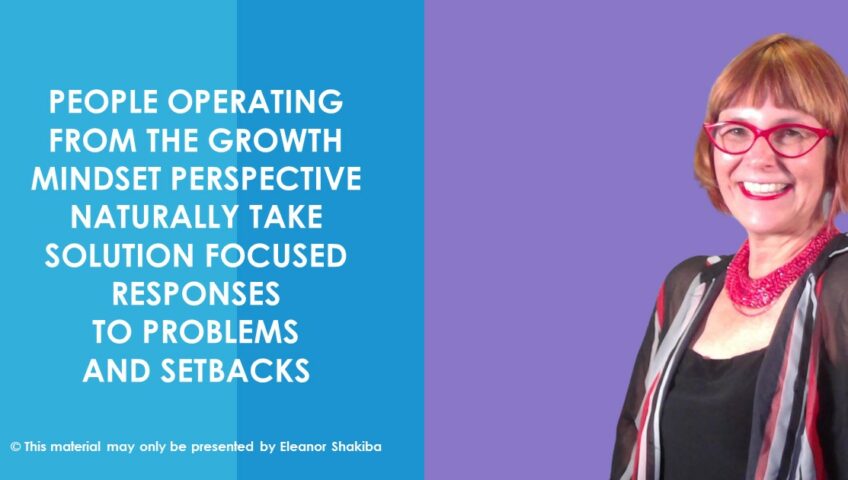Having a fixed mindset is a significant barrier to learning. It creates defensive reactions to feedback, resistance to change and an inability to concede or collaborate with others. This is why positive psychology trainers and positively deviant leaders focus on helping people develop the growth mindset attitude.
Growth mindset is characterised by curiosity, openness to learning and flexibility. For example, when Covid19 restrictions first hit Sydney, coffee shops experienced a sudden drop in trade. Many cafés in my area shut their doors, only re-opening when Jobkeeper subsidies were introduced. But one café stood out. The owners went into solution focused mode. First, they introduced a new range of take away meals and streamlined service delivery. Next, they started producing funny videos, in which they sent themselves up and kept customers smiling. While other coffee shops floundered, this one flourished.
What fascinated me was the owners’ natural response to adversity. Instead of dwelling on what was going wrong, they adapted. This is the essence of growth mindset. People operating from the growth mindset perspective naturally take solution focused responses to problems and setbacks. Often, they don’t even register that a ‘problem’ exists, because they are so busy creating pathways to success. When this happens, people become open to new ideas and take new approaches to both life and work. So how can a trainer or leader help an employee shift from fixed mindset to growth mindset mode?
The most significant thing we can do is teach the skill of cognitive reframing. Have you completed any programs in my Learn with Eleanor Shakiba training series? Then you’ll know that perspective-shifting is a skill I teach in every program. It involves changing your perspective on a situation or problem. Drawing on positive psychology training techniques, the simplest ways to do this are:
- Actively challenging flawed chains of assumption
- Looking for a context in which a seemingly problematic situation would benefit you
- Interpreting a negative in a positive light
Mastering even one of these techniques can significantly shift an individual’s mindset. This will result in higher levels of happiness and well-being, which inevitably translates into authentic engagement and participation in workplace activities. The bottom line is, cognitive reframing is one of the key positive psychology training techniques that can foster the development of a vibrant workplace culture.
If you’d like to find out more how to use positive psychology in your training and development activities, download Eleanor Shakiba’s Positive Psychology Toolkit for HR and L&D Practitioners.
About the author: Eleanor Shakiba
Eleanor is a positive psychology trainer and coach. Her passion is teaching skills for positive thinking, proactive communication and purposeful leadership. Her clients work in academia, education, IT, engineering, finance and health. Eleanor is qualified in Social Anthropology, Positive Psychology, Counselling, Coaching, Adult Education and Neuro Linguistic Programming. She’s the author of the Positive Psychology Toolkit for HR and L&D Practitioners, a free resource for trainers.
